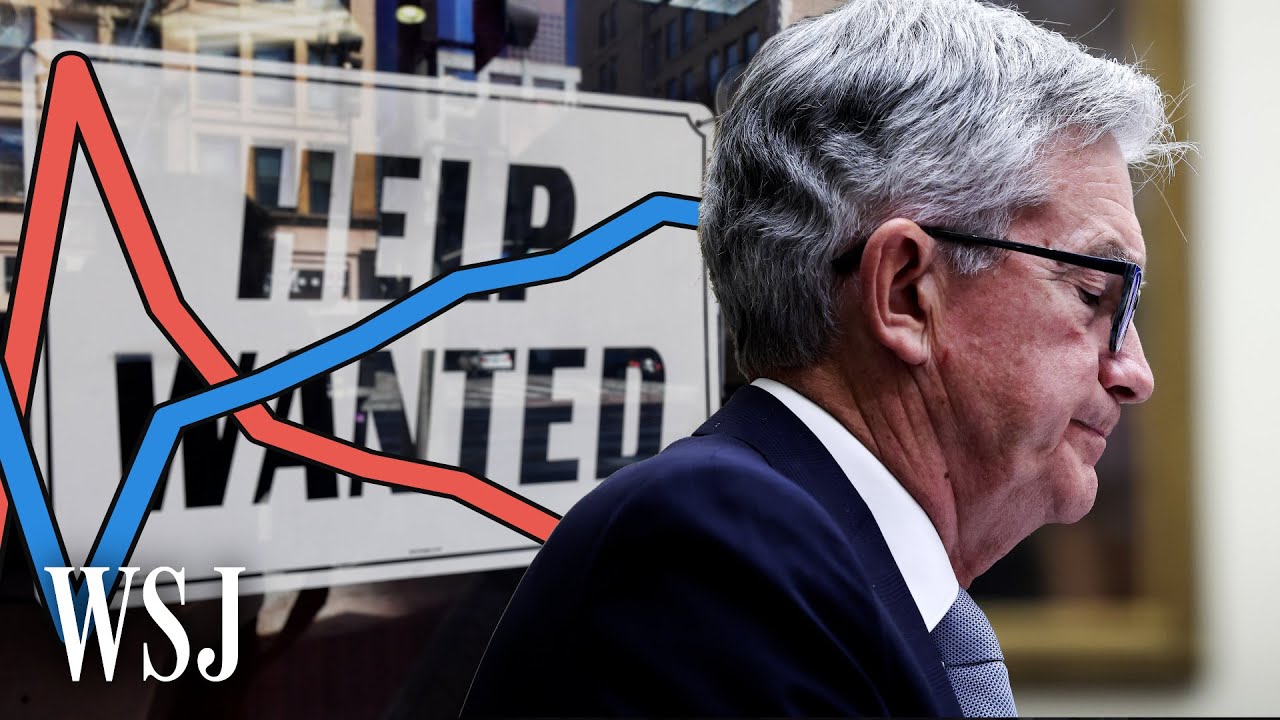In Search engine optimization
Why a 2022 Recession Would Be Unlike Any Other | WSJ - read the full article about July Google update, Search engine optimization and from Wall Street Journal on Qualified.One

Youtube Blogger

- [Narrator] If you look at every U.S. recession, well, since World War II, youll see two things always happen.
The GDP, the measure of economic output goes down and unemployment goes up.
- For most Americans, when do you feel a recession? Its when you start worrying about your job.
- [Narrator] Now lets look at today.
The GDP is going down, even the head of the federal reserve says a recession is- - Certainly a possibility.
- [Narrator] But the unemployment rate, its actually falling.
More people are getting jobs, not losing them.
- We dont know if its a recession.
What we can say is that if it is one, its not like anything weve ever seen before.
- [Narrator] Heres why.
The reason the GDP and unemployment are always together is because they feed on each other.
When businesses layoff workers, people spend less money which means businesses make fewer profits and lay off workers.
A recession can begin at any of these points.
And in 2022, people could cut back on spending.
Just look at consumer sentiment, a measure that weighs how people are feeling about the economy and whether they plan to spend money soon.
Generally, when people respond that they feel more pessimistic, a recession follows.
And right now theyre feeling about as good as during the great recession in 2008, thanks to inflation, not a great sign for the GDP.
- If people are frustrated by high inflation, if they think inflation is gonna stick around for a while, they might pull back convince companies to cut back and that leads to worse outcomes for the economy.
- [Narrator] But businesses are in a different place than past recessions.
This chart shows the average corporate profit margin.
In the past profits were in these single digits leading into several recessions including 2001.
- That was a business driven recession where companies over-invested, they decided they had to cut back in order to rebuild our profit margins and that led us right into a recession.
- The bubble has now burst.
I would not argue yet that weve seen the bottom in NASDAQ or in our tech index.
- So are we back in one of those cycles? In some ways it doesnt look like that because profit margins are so high right now.
- [Narrator] Not only are corporate profits in double digits but the amount of cash they have is close to $4 trillion.
Analysts say thats a significant downturn buffer.
- They might just decide they can weather this storm and not lay off workers and not cut back on investment and kind of get us to the other end of this adjustment without a big retrenchment that feeds on itself.
- [Narrator] And companies have an incentive to not lose any workers because many are having problems finding workers in the first place.
Its a really unique time in the job market.
The labor force participation rate is as low as its been in 40 years.
And it isnt all due to the pandemic, the rate has been declining for a long time.
You can see it in the unfilled job rates too.
As more people leave the labor force, the more job positions become available.
Add in a pandemic and thats a lot of jobs.
- 11 million jobs are out there that they just cant find people to fill.
Now to put that in perspective, if you look back at say 2019 when the economy was considered to be exceptionally strong, unfilled job openings were seven million.
So like here we are talking about a downturn in the economy and we have four million more jobs open than we had even at the height of the last expansion.
So you have to ask yourself a question, why is that? Why is that happening? One answer is that theres generational change happening in the economy.
We have millions of baby boomers who are retiring.
So theres just not as many workers out there.
Its also been the case that theres just been really strong demand for goods and services in part because of all this stimulus that was pumped into the economy during the pandemic.
And so that combination of labor shortages and strong demand created this really robust job market.
- [Narrator] And its this robust job market that can make a 2022 recession if one develops so different.
After past recessions, there was what was called jobless recoveries where GDP began to grow back but companies continued to lay off workers.
- [Jon] Right now were seeing a mirror image of that where the economic output is contracting and companies are still hiring.
Its what Im calling a job full downturn.
- [Narrator] But how long could an economic downturn really be job full? - This is unsustainable, right? To have economic output contracting at a time when companies are hiring.
So one of two things has to happen.
Either the economy adjusts and companies start expanding again.
Or the economy keeps contracting, economic output keeps contracting and companies say, whoa, were over our skis and weve gotta cut jobs.
One of those two things is gonna happen.
We just dont know which of the two.
- [Narrator] No recession has ever looked exactly like another and if theres a recession in 2022, it wont look like anything weve seen before either.
(soft upbeat music)
Wall Street Journal: Why a 2022 Recession Would Be Unlike Any Other | WSJ - Search engine optimization

